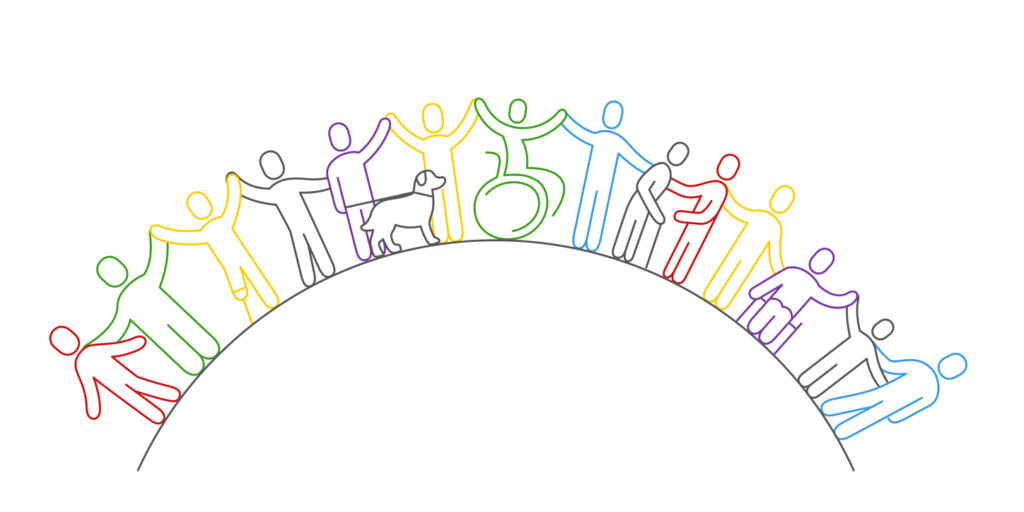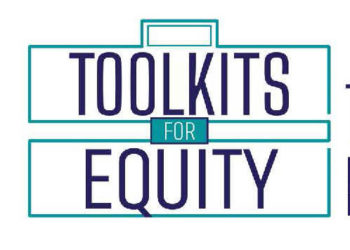“Do the best you can until you know better. Then when you know better, do better.” – Maya Angelou
When we are young, it is well accepted that we are actively learning, in school and beyond, developing our minds and bodies every day. We accept that young people are continually growing and maturing into their future, adult selves. However, the reality is: We are never done learning, whether we acknowledge it, or not. We are all, continually, works in progress.
Dear reader, please keep this simple truth in mind as you browse the latest from Learned Publishing, dedicated to building a more diverse, equitable, inclusive, and accessible (DEIA) community. I have faith that the first 2023 issue contains at least one new insight for every reader who is willing to learn something new about how each of us can contribute to a more just and egalitarian culture of scholarly communications.

Contributors to this issue present original research and case studies that demonstrate efforts to level the playing field and right historic wrongs in scholarly publishing. Many reflect on increasing investments in DEIA initiatives and how success is being measured. Some change up the wording and speak of “EDI” (equity, diversity, and inclusion) or “JEDI” (justice, equity, diversity, and inclusion), while others consider “ESG” (environmental, social, and governmental) factors that influence the future of scholarly communications. Whatever the framework, each article in this special issue represents the current debates and discussions about the intersectional dynamics of social prejudices and inequities at play in this important information sector — from power centers, like ivory towers and executive suites, dominated by white, English-speaking men, to inaccessible software, uneven access to scholarly literature, and outdated systems that perpetuate binary gender identities and racist paradigms.
Taken together, Learned Publishing’s DEIA issue presents us with three important actions anyone can take up right now to achieve a kinder, more equitable workplace for everyone:
- Listen: Talk less, listen more. Don’t assume you know someone else’s experience (I promise, it’s not the same as yours). Actively involve those who have not been at the forefront of the scholarly publishing conversation. Invite colleagues, authors, editors, and reviewers in otherwise marginalized groups to have a seat at the table — and then really listen to what they have to say. Whether through cross-functional working groups, editorially driven initiatives, or industry-wide committees, we must encourage everyone in peripheral positions to speak up and step up to play bigger roles in our value chains. If you are someone with a lived experience of the inequities and prejudices found in scholarship and publishing, whether related to race, gender, disability, or other backgrounds and identities, thank you for raising your voices and making your needs known to our community — and we all can honor the burden such efforts place on emotional and energy reserves by listening carefully to these experiences.
- Reflect: Stop and think. It’s important to routinely pause, check our own biases and do the work to ensure we minimize them. Biases are those pesky presumptions that sneak into daily thoughts and become ingrained in our worldviews. It can be easy to flow along with accepted norms for whose work is promoted and recognized. Carefully planned DEIA toolkits (like the one offered by C4DISC) can be valuable maps to help our organizations move forward with concrete changes, like adopting inclusive language standards. But, there is no single playbook that will apply to every scenario. No matter how robust our plans may be, there will inevitably be gaps and room for improvement. We must regularly revisit our operating assumptions and be bold enough to be vulnerable — to admit past mistakes, to learn, to ask one another: “how can I do better?”
- Impact: Make it count. Do the work and walk the walk. Do more than talk about the need for DEIA changes. Let’s make a genuine difference in the lives of researchers, learners, editors, and others with a stake in our industry’s protocols and systems for scholarly communications. It’s time to move beyond the hype and work together to inspire beneficial changes — like establishing policies and workflows to support author name changes and leveraging data to better facilitate diverse identities. The most impactful DEIA initiatives are those with clear goals and benchmarks for successfully improving the inclusivity and equity of our industry. Let’s do more than talk, let’s make an impact.
The January 2023 issue of Learned Publishing offers a key reference point as this community of scholarly content and service providers continually evolves and improves upon what we offer the world of research, education, and knowledge development.
Discussion
1 Thought on "Know Better, Do Better: Learned Publishing Reflects on DEIA in Scholarly Communications"
An important topic, and good to see it well covered in Learned Publishing. Readers of this blog post might like to know that the Researcher to Reader Conference on 21-22 February will be workshopping the challenges of ‘Diversity Tax’ (Workshop E: Challenges in Supporting Inclusiveness), and also has a panel discussion on inclusivity (Agents of Change for Inclusivity), which draws from Emerald Publishing’s Global Inclusivity Report. The Conference is fully hybrid, so people can join at the London venue or online.
https://r2rconf.com/r2r-conference-programme/



